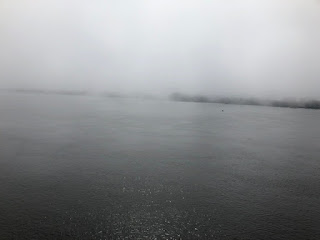The European Union is closed to visitors from the US and other places.
For what may be the first time in history, the border between the US and Canada is closed, except for "essential" travel and people returning to Alaska.
Even the border between the Australian states of New South Wales and Victoria is closed.
Earlier in the COVID-19 pandemic, when my hometown of New York was one of the "hot spots," other states required visitors from our state, and others, to self-quarantine. Beaches and parks in New Jersey and Long Island were open only to local residents.
Now that the "curve" has "flattened," at least for for the time being, we and neighboring states are requiring visitors from Florida, Texas and other states that have become new "hot spots" to self-quarantine upon arrival.
But as far as I know, no place has had any "no outsider" ban that applied specifically to cyclists. At least, not until this past Tuesday, when the village of Key Biscayne, Florida banned all bicycle travel by non-residents.
The reason the village, located on a barrier island off Miami and Miami Beach, gave for its prohibition is to stop the spread of the corona virus. Lawyers representing several Miami-Dade residents said the ban "based on a report of a few individuals not wearing masks" is "absurd." One of the lawyers, Phil Prazan, said that because cars are still allowed into the village, the new rule is a "poorly veiled excuse to ban cyclists."
Hmm...I wonder how many people--local residents or outsiders--are congregating, sans masks, on area beaches.















